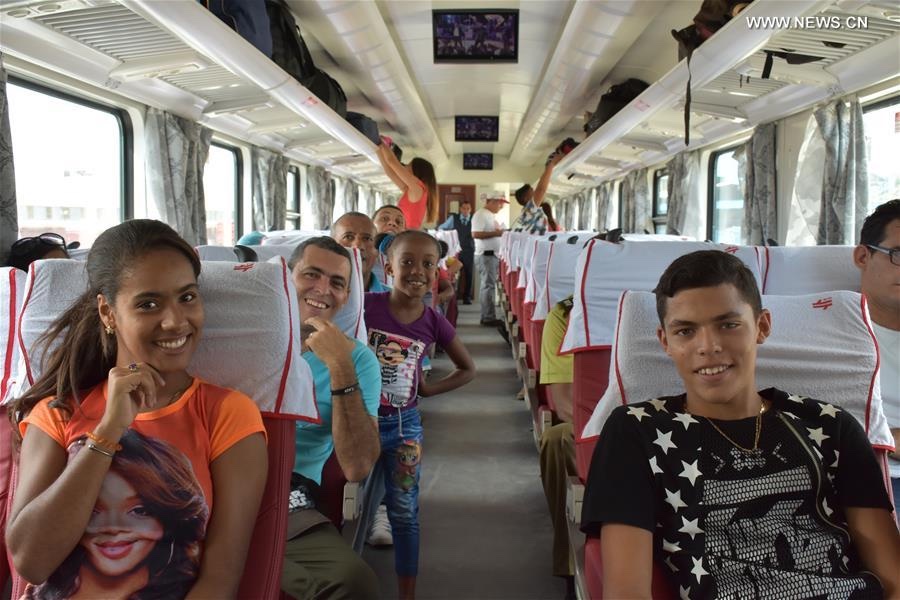CUBA STANDARD — Travel on Cuban long-distance trains is set to become a bit more comfortable this year. As news portal Cubadebate reports, inter-city trains on the island will be equipped with WiFi for passengers. This is intended to “add value to the railways and achieve a new standard of comfort,” engineer Robelis Lambert Matos, who is involved in the implementation, told the portal.
The launch of a second submarine fiber-optic cable between Cuba and Martinique in April will significantly increase the island’s bandwidth, with existing gaps to be filled as part of the country’s digitization strategy.
Technical implementation of the project is carried out by the state-owned information technology company Solintel S.A., which was founded 10 years ago. The main challenge is in the still patchy cellular coverage along the main route from Havana to Santiago de Cuba. The expansion will begin in the third quarter. Before the end of the year, WiFi should be working in “some sections.” Currently, the worst wireless holes are being targeted in order to plan the construction of new transmission towers. This should make the 20-plus hour train ride between the country’s two largest cities a bit more pleasant.

Cuba has revamped its long-distance trains starting in 2019 with carriages from China and Russian locomotives. The new trains consist of 12 carriages, of which the first class is air-conditioned, and can accommodate 720 passengers. Also new is a bistro car with free water dispenser per train, though the food offerings are rather spartan. The price for the longest route (Havana-Guantánamo) is 138 pesos (about €1.15) in first class and 69 pesos (about 60 cents euro) in non-air-conditioned second class, which is significantly cheaper than long-distance buses and private truck transporters (camiones). However, the travel time is about twice as long due to the poor quality of the tracks.
This article was first published on Cuba Heute, a German-language news portal.

